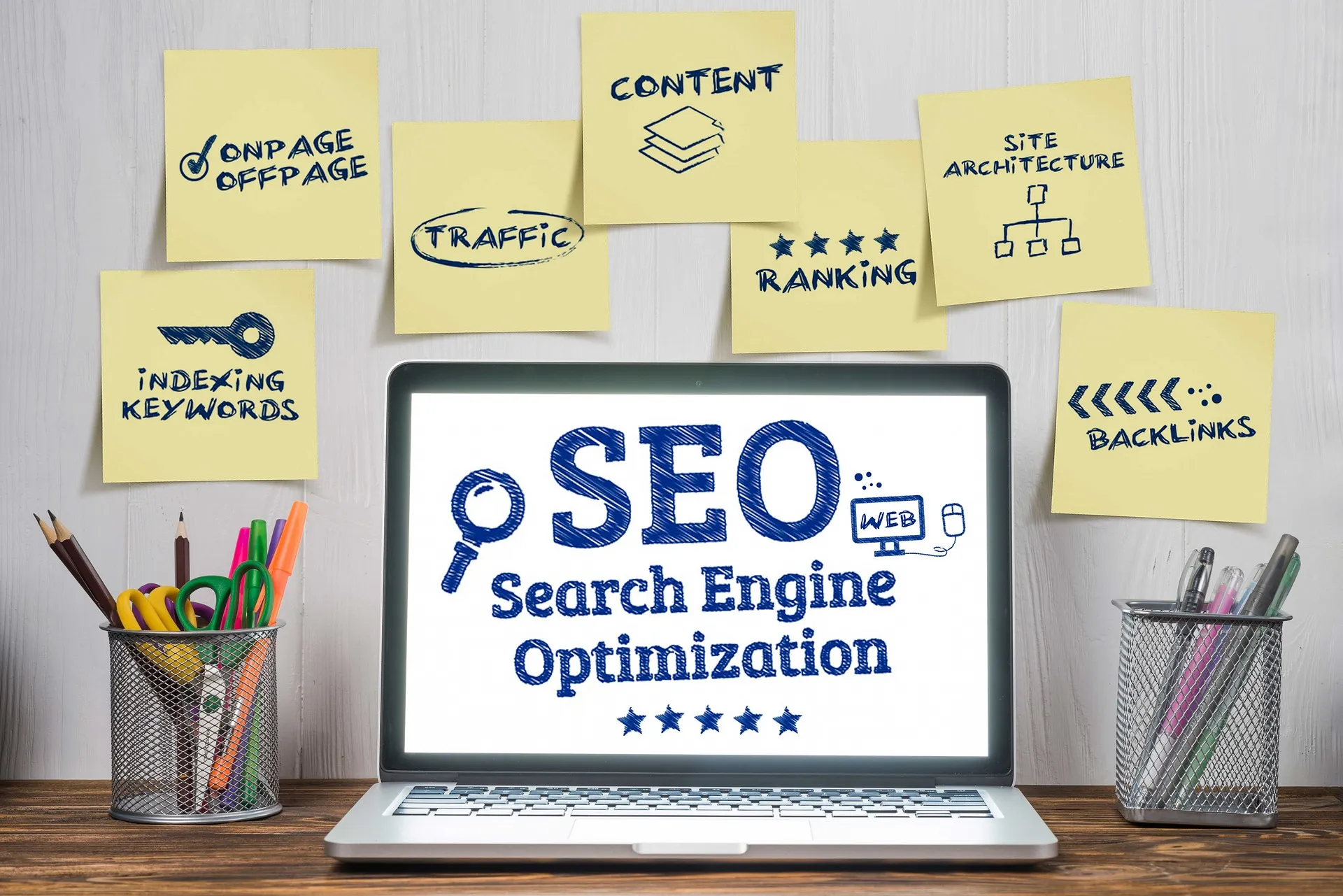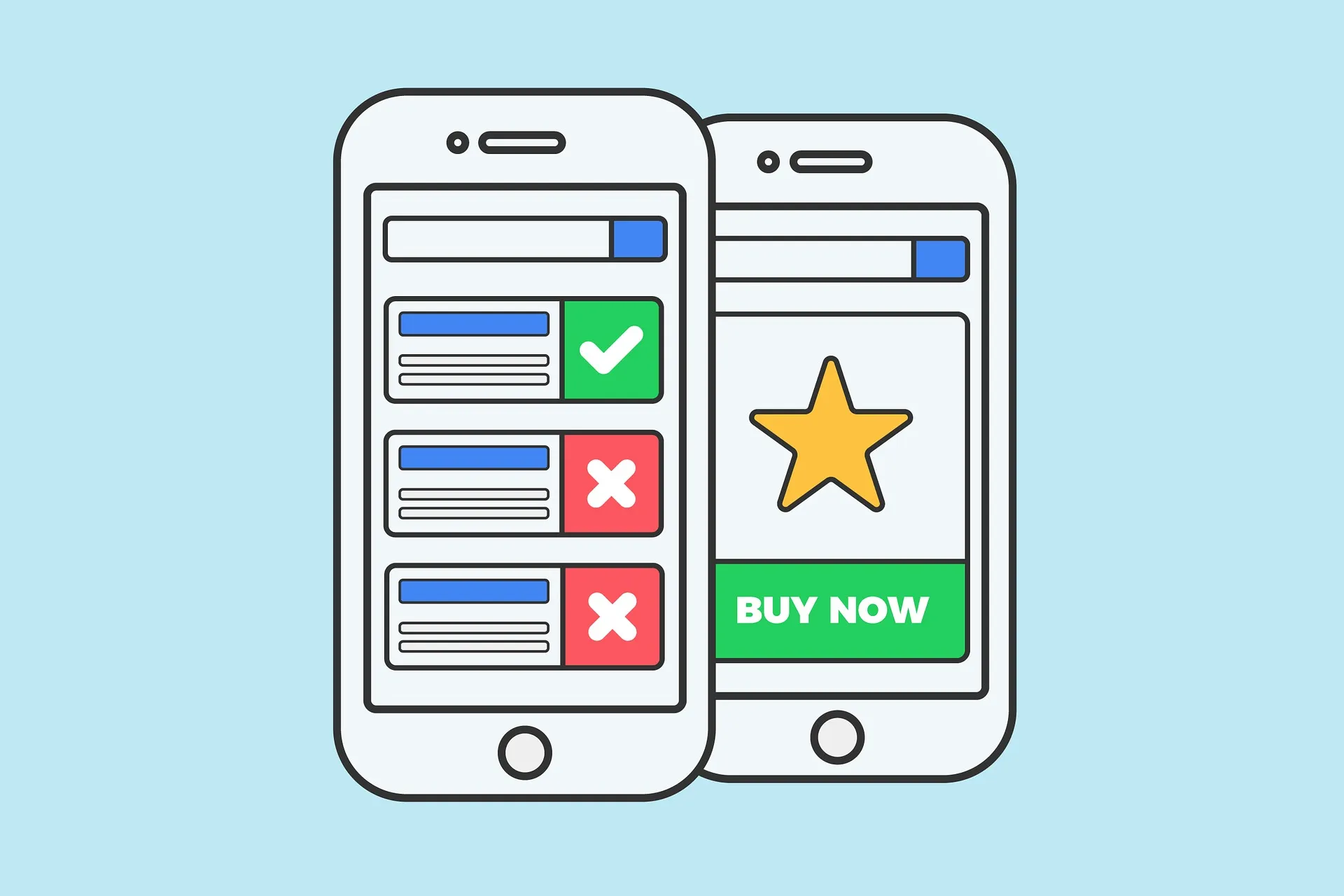Why Search Engine Optimization is Important for Business
Building a business and finding customers is hard. Learn why SEO can help you increase online presence, diversify traffic channels, and earn more revenue.

When starting or building a business, making your website findable is hard! Search engine optimization is a critical part of this. SEO is often shrouded in mystery but, it isn’t as complicated as you might think.
In this article we’ll take a look at what SEO is, why you need it, and how it will pay off for your business in the long run. We’ll also talk about how you can learn to use SEO yourself to save a lot of money.
What is Search Engine Optimization (SEO)?

The intent of search engines is to provide links to the most relevant webpages for a user’s search query. Search engines achieve this by trying to calculate and rank quality and relevance. SEO is about taking as many of these ranking factors as possible and building them into your content. Thinking about it as more of a game is a fun way to approach it!
In the early to mid 2000s, SEO worked different from how it works today. Nowadays, good SEO is much closer to what creates good user experience.
What is the difference between SEO and Digital marketing?
SEO is one strategy within the digital marketing realm. It is what we call unpaid, owned, or earned marketing. It’s considered an inbound marketing strategy. This means you create valuable content and experiences and let users come to you.
It’s “unpaid” in the sense you are not buying the traffic like you would be with something like Google Ads. This doesn’t mean it won’t cost you money to produce the content. For example, product reviews might cost you due to buying the products to review.
It’s owned and earned in terms of investing in the content infrastructure of your website. After all, what is a website worth if it doesn’t have much content on it? Over time, you might end up investing thousands of dollars in the content of your website. This content is an asset that accumulates value to your business.
Why is SEO important?

Findability is one of the most difficult parts about having a website. The more optimized your website is, the easier it will be to find. The more traffic you get, the more revenue you will generate. Let’s take a look at several ways SEO will help your website.
It improves keyword rankings
A well-optimized website will rank for more keywords and have better rankings. Ranking for more keywords expands your visibility with users. When users see your brand in more of their searches, it builds authority.
It increases web traffic
As you gain more keyword rankings, you’re gaining more traffic. Each keyword reaching page 1-2 of search results is a few more visits per month. A more optimized website means each page will rank for more keywords. More keywords means each page will get more traffic.
It grows revenue and profit
More website traffic doesn’t always create more ad clicks or product sales. You can get traffic from anywhere but, not all traffic is good traffic. Good SEO ensures the right users find your products and services.
Is SEO important for every kind of business?
In our opinion, YES, SEO is important for nearly every business. Think of SEO as somewhat synonymous with good user experience (UX). The more organized your website is, the more useful and enjoyable it is.
What SEO can do for your business

SEO can often sound vague and difficult to attribute a value for in business. It can take a long time to build good SEO, and the results are often peripheral or hard to attribute to any one effort.
Here are a few important facts to keep in mind when assessing the value of SEO for your business.
- Keyword rankings build brand trust with your customers
- SEO can increase visibility with new customers
- Good SEO creates a better user experience
- SEO is less expensive in the long run
Keep these factors in mind when considering implementing SEO yourself or outsourcing. It takes a long time to build, so there’s no time like the present to get started.
Learn more about what SEO can do for your business.
How does SEO work?

SEO is a subject often shrouded in mystery. It’s easy to get mired in the technical details but, at its core there are 4 basic components to how SEO works.
- Search robots crawl your website.
- Search engines index your webpages.
- Search engines rank your webpages for keywords.
- Users click on your site from search results (organic traffic).
As you learn more about SEO and begin implementing it within your own website, always remember these 4 basic steps of Selection.
As you modify existing content or plan to add new content, take into account these principles to ensure you prioritize your efforts appropriately.
Discover more about how SEO works.
What SEO efforts does a business need?

Now that you’ve seen the four core principles of how SEO works, let’s talk about the four core areas of SEO implementation. SEO can include a great many subjects however, it can usually be boiled down to these four key areas:
- Content strategy
- Site structure
- Technical SEO
- Off-site SEO
It’s critical to understand at least a little bit about each of these key areas of SEO. This will help you most effectively allocate your time and resources to either implement SEO internally or hire a consultant or agency.
Learn more about how to determine what SEO efforts your business needs.
Should you hire an SEO consultant or agency?

As they say, time is money. Good SEO can be expensive and take a long time to drive results that improve your bottom line.
The question is whether the time involved in doing it yourself is worth more than the cost of outsourcing.
Here are a few of the common issues business owners can face with SEO outsourcing:
- Outsourcing SEO can be expensive
- Results usually take a long time
- Bad SEO can have negative consequences
- No one knows your business like you do
Regardless of what choice you make, whether to outsource or keep SEO in-house, it’s always a good idea to learn a bit about SEO and how it works. This will at least help you assess the quality and value of SEO vendors you seek out.
Learn more about how to determine if you should hire an SEO consultant or agency.
Can you do SEO yourself?

The answer is yes! In fact, for most small businesses, we feel this is the ideal scenario. These days, the major search engines have advanced to the point where “good SEO” is almost synonymous with good user experience.
This means, once you learn a few basic SEO principles, you can simply focus on creating good content that fulfills your users’ and customers’ needs. Here are a few common questions business owners ask themselves:
- What expenses are involved if I do SEO myself?
- How can I start optimizing my business website?
- Can a business stop doing SEO once it’s successful?
- Do I need to worry about SEO algorithm changes?
As you’ll see in the guide below, the answers are overwhelmingly positive and pragmatic. Nearly any small business owner can begin implementing SEO themselves, and often for little to no money.
Learn more about how you can get started implementing SEO yourself.
What is the best way to learn how SEO works?

When it comes to learning SEO for yourself, it’s easy to become overwhelmed by the sheer number of resources available. Not all of these resources are filled with good advice, and many are outdated and no longer relevant.
Our team has come up with a simple set of principles to keep in mind, that will help you cut through the noise.
The important thing to remember is to learn briefly about small things and focus on beginning to experiment with them within a short period of time.
This usually means experimenting within a few minutes or hours.
Discover tips and tricks to help you learn SEO on your own.
Final thoughts
That was a lot! Let’s recap what we’ve discussed. We talked about what SEO is, why it’s important, and what it can do for your business. We also took a high-level look at how SEO works and what types of SEO efforts you might need. Lastly, we talked about how to decide if outsourcing SEO makes sense for your business, and if not, how you can learn to do it yourself.
We hope this was a helpful overview to help you feel more comfortable about understanding what the right next steps in SEO are for your business. Keep an eye out for our free resources to help you dive into learning more about some of these specific SEO subjects.


